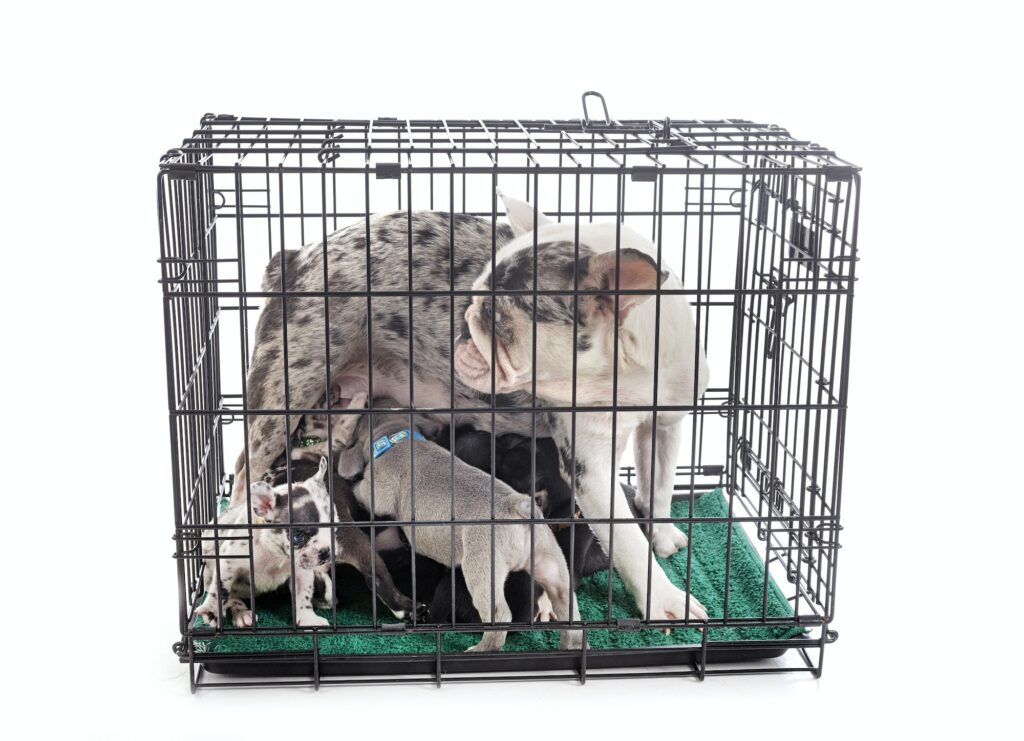If you love animals, it’s hard to hear about puppy mills and other aspects of the commercial pet trade. Unfortunately, they are a stark reality in many parts of the world. From poor conditions where dogs are kept in overcrowded cages to unethical breeders who are careless about genetic health issues – there are a lot of things that animal lovers need to be aware of when it comes to understanding the cruelty used by those involved in the puppy trade. In this blog post, we will provide an in-depth view of what these mills are actually like and examine some of the problems associated with them so that you can make more informed choices as a responsible pet owner and animal advocate.
What is A Mill?

A puppy mill is a commercial dog breeding facility, sometimes referred to as a “puppy farm.” They are for-profit operations that produce large numbers of puppies for sale with little or no consideration for the health and well-being of the animals. These facilities are often run by corrupted individuals who prioritize profits over animal welfare.
According to the Humane Society, there are approximately 10,000 puppy mills in the United States. Out of these, around 3,000 mills are licensed and regulated by the U.S. Department of Agriculture (USDA), while the remaining 7,000 mills are unlicensed and unregulated. When cute puppies are seen in pet stores, they are most likely from one of these unregulated facilities. According to PAWS.org, approximately 90 percent of puppies sold in pet stores come from puppy mills.
The Humane Society also reports that there are approximately 500,000 dogs being used for breeding in puppy mills. These facilities sell an estimated 2.6 million puppies annually through various channels such as online, local ads, and select pet stores that still offer puppies from these types of facilities.
Why Are Puppy Mills Bad?
Puppy mills are bad news for a variety of reasons. The most obvious issue is the lack of humane standards, which can include overcrowded cages, inadequate nutrition, and minimal veterinary care. Dogs in these types of facilities are often kept in small wire cages or kennels with no bedding or protection from the elements. These conditions can result in physical ailments as well as psychological trauma. Facilities such as these are known to have several common diseases like kennel cough (Bordetella bronchiseptica), pneumonia, Parvovirus (“parvo”), Canine Brucellosis, and Canine Distemper virus. Additionally, they frequently carry worms, fleas, and mange. Because of their cramped living conditions, dogs from puppy mills can also suffer from injuries like overgrown nails, foot injuries, and even jaw injuries from chewing or fighting with other animals.
In addition, these facilities are responsible for inbreeding and the over-production of puppies which can lead to a variety of other health issues. Many times breeders will continue to use dogs with genetic problems (such as hip dysplasia) as breeding stock because they don’t have to pay for veterinary care. As a result, generations of puppies suffer from genetic defects and other health issues.
Puppy mill breeders prioritize popular or trendy breeds for greater profits, which can lead to serious genetic health issues in some purebred dogs. Golden retrievers are just one example of a “trendy” breed that suffers from extensive selective breeding. Because of selective breeding, golden retrievers have a 60% higher chance of dying from cancer compared to non-purebred dogs. Additionally, 73% of golden retrievers have hip dysplasia, which is a genetic condition that can cause pain and limit movement, leading to conditions like arthritis.
If all of that wasn’t bad enough, these facilities also contribute to the pet overpopulation problem as they produce large numbers of puppies with little or no regard for quality or proper placement. This often leads to an increase in abandoned animals and overcrowded shelters.
Are Puppy Mills Legal?
Now knowing all of the terrible things that happen at puppy mills, you would think that places like this are illegal. Well, unfortunately, you would be wrong. While there are laws in place to regulate these types of facilities, they do not address all of the issues associated with them, and in some places, puppy mills are still completely legal.
Legally, a USDA-licensed puppy mill is permitted to have:
- No outdoor or indoor exercise facilities or activities
- An unlimited number of dogs
- 24-7 caging for the dog’s entire life
- Stacked cages as high as possible
- Mesh or wire flooring
- Caging is only 6 inches larger than the dog
- No grooming requirements

The USDA also allows facilities like these to sell puppies sight unseen, which means that buyers cannot physically visit the facility or meet the parents of their new pet. This is a major issue as it leads to unethical breeders taking advantage of unsuspecting buyers. Additionally, there are no laws limiting how many litters a breeding dog can have in her lifetime. As a result, female dogs are often overbred and kept in cages their entire lives with little to no socialization or exercise.
Fortunately, legislation is increasing across the country that seeks to crack down on puppy mill operations and encourage more humane breeding practices. For example, California has passed a law prohibiting pet stores from selling animals that do not come from a shelter, a Society for the Prevention of Cruelty to Animals (SPCA), or a humane society. And many other states across the US are now enforcing puppy mill laws and regulations in order to ensure that puppies are bred responsibly. The Puppy Mill Project also provides resources and legislative updates on their website so you can stay up-to-date on the latest laws in your state.
How to Determine If Your Dog is From a Puppy Mill
It is important to do your research before getting a new pet and be aware of the signs that indicate your pup may have come from a puppy mill. Here are some tips for determining if your dog may have come from a one of these facilities:
If you have any suspicions that your pup may have come from a puppy mill, you should contact the breeder right away and demand to see where the puppies were raised and who their parents are. Additionally, you should report any suspicious breeders to the appropriate authorities. By doing this, you can help put an end to puppy mills and ensure that all puppies are raised in humane conditions.
How You Can Help Stop Puppy Mills
The best way to help stop puppy mills is by not supporting them. Instead, opt for adopting a pet from a local animal shelter or rescue organization. There are countless animals in shelters waiting for their forever homes, and when you adopt, you’re not only saving the life of one dog but helping make room for another one to be rescued.
If you must purchase a puppy, it is important to do your research and make sure you’re buying from a responsible breeder. Reputable breeders will always be willing to let you visit the facility and meet the parents of the pup. Additionally, they should have health records for all of their puppies and provide a written guarantee that covers any genetic or health issues.
You can also help stop puppy mills by spreading awareness and educating people about the issue. Talk to your friends and family about the dangers of buying from pet stores or online sellers, and encourage them to adopt a pet instead. You can also volunteer at animal shelters or donate money to organizations that are fighting against puppy mills, such as Wounded Paw Project and the ASPCA.
